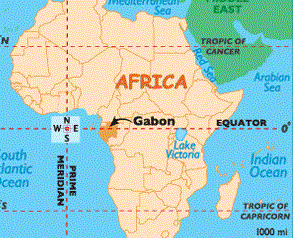Gabon’s First Agri-SEZ Project
In a significant development the Union Minister of Education and Skill Development and Entrepreneurship flagged off Gabon’s first Agri-SEZ project from New Delhi. This project, which focuses on agriculture and food processing, is set to bolster India-Africa relations and foster cooperation between the two nations.
Partners in Progress
The implementation of Gabon’s Agri-SEZ project involves collaboration between the AOM Group and Centurion University. With their combined expertise, the project aims to drive advancements in the agricultural sector, laying the foundation for sustainable food production and economic growth.
Empowering Farmers and Students
A delegation comprising 30 farmers and 20 students from Gajapati district, an Aspirational district in Odisha, will travel to Gabon to provide technical assistance. This exchange of knowledge and expertise will enable the farmers and students to contribute to the development of the agriculture SEZ and gain valuable insights from Gabon’s agricultural practices.
Promoting High-Level Engagements
Over the past nine years, India and Africa have witnessed more than 35 high-level visits, indicating the growing significance of their partnership. This demonstrates the commitment of both sides to enhance diplomatic ties, foster economic cooperation, and promote cultural exchanges.
Development Partnership: A Pillar of India’s Africa Policy
The establishment of the Agri-SEZ project reflects India’s commitment to development partnership with Africa. India has extended concessional loans amounting to over US$ 12.3 billion, supporting various development projects in Africa. This partnership emphasizes India’s role in facilitating socio-economic progress and promoting self-sufficiency in African nations.
Education and Skill Development Collaboration
Education and skill development have emerged as crucial areas of cooperation between India and Africa. The long-standing relations in these sectors have paved the way for knowledge sharing, capacity building, and mutual learning. Such collaborations empower individuals and contribute to human resource development in both regions.
Month: Current Affairs - June, 2023
Category: International / World Current Affairs


